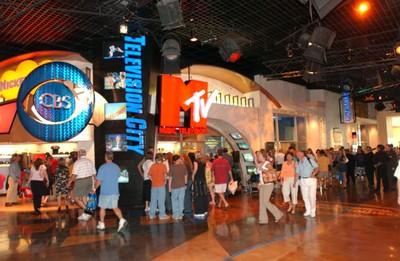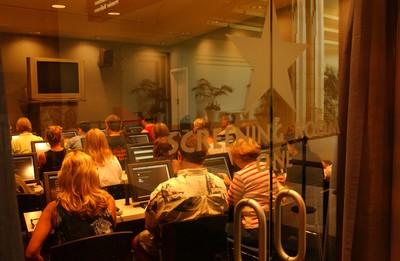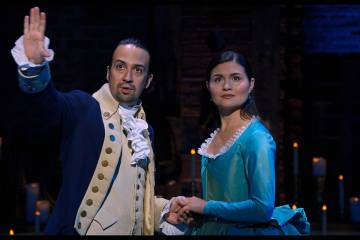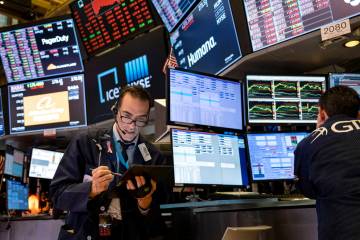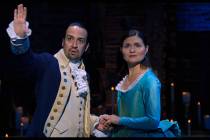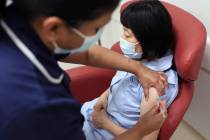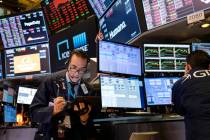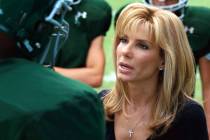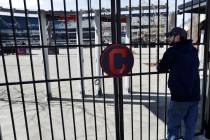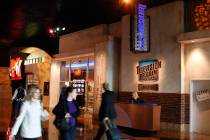Television City gives viewers chance to have their say
At some point in your life, you've stumbled across an unfamiliar show and wondered what brain-dead, crazier-than-a-sack-of-Paula Abduls moron put that on TV.
If it was on CBS, that moron could have been a hung-over frat boy from Maine or a slot-loving granny from Oregon. Or it could have been your co-worker, the one who still insists on asking whether you're workin' hard or hardly workin'.
The network has been testing its new series on Las Vegas audiences for nearly 20 years. But since CBS opened its state-of-the-art research center here six years ago, the city has become the home to essentially all of the network's market research, according to David Poltrack, the executive vice president of research and planning for CBS.
You've probably seen Television City, tucked deep in the bowels of the MGM Grand, past the food court. But, having walked the Strip a few times, you'd sooner take a beating than a flier from a stranger and likely had no idea what lay inside.
Here's your chance to find out.
For the next two weeks, you can see an episode of one of the 25 to 30 series CBS and its sister network, The CW, are considering for the fall. Turn a dial up when you see something you like, turn it down when you see something you don't, and answer a few questions. You'll leave with a Starbucks coupon, a monorail pass, a $10 gift certificate to the Television City gift shop, and the satisfaction of knowing you helped put a show you loved on the air or helped keep one you hated from seeing the light of day.
Although the city was chosen based on its number of tourists, who made up the majority of the 68,000 Television City participants last year, locals always are welcome, Poltrack says. That's primarily because most "locals" aren't from here, anyway. "So it's a good test market, even if you never talk to anyone on the Strip," he says, "and just talk to people in Summerlin and Henderson and Green Valley." (Test America operates TV-testing facilities in The Venetian and Planet Hollywood Resort, but they're off-limits to locals during these weeks known as pilot season.)
Each pilot is shown to 225 volunteers. Their feedback is given to producers, who make a few tweaks before another 225 volunteers see it. Two 12-person focus groups are chosen from those volunteers to give more in-depth analysis.
All that data plays a role in deciding which series make it on the air, and that's where things could get a little scary.
Yes, TV is a business, but popularity can be a dangerous tool. I doubt you could get even that one-man hyperbole machine Ryan Seacrest to say that "American Idol," far and away TV's most-watched show, is far and away its best. Likewise, you'd surely find few credible voices who'd say year-end chart-toppers "Pirates of the Caribbean: Dead Man's Chest" and Daniel Powter's "Bad Day" were the best movie and song of 2006.
If you're picking shows based solely on what's popular, you'd go with a singing, dancing extravaganza about a group of doctors, one of whom has a drug habit and a limp, who sleep around and solve crimes on a mysterious island with the help of an adorable Asian who can stop time. It would test through the roof. It just wouldn't be very good.
Thankfully, the selection process isn't that cut and dried. Poltrack, in town for last week's National Association of Broadcasters convention, says a good executive can make the right call on a series 75 percent of the time based solely on experience. "But the ones that are the hardest to call," he says, "are the ones that sometimes go on to be the biggest hits."
That's where the research fits in. Take "CSI: Crime Scene Investigation," the greatest success story to come out of Las Vegas testing. Nobody at CBS knew what to make of the series until Vegas tourists ate it up. Those numbers inspired the network to give the series a chance, and CBS rode it and the crime dramas it inspired to the top of the ratings.
When it isn't testing new series, Television City's research focuses on those that already are on the air and what Poltrack calls the diagnostic aspect: which characters does the public want to see more or less of, should certain characters become romantically involved, that sort of thing.
Most of the network's successful shows, he says, "have made changes in tone and in casting that are reflective of the input that we got from the public."
So even if you can't make it down there during these next two weeks, you can still make a difference. After all, somebody has to cancel out those morons' opinions.
Christopher Lawrence's Life on the Couch column appears on Mondays. E-mail him at clawrence@reviewjournal.com.
CHRISTOPHER LAWRENCELIFE ON THE COUCH



